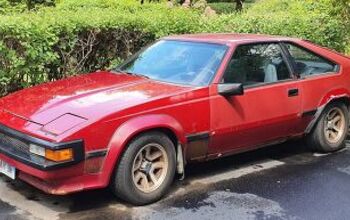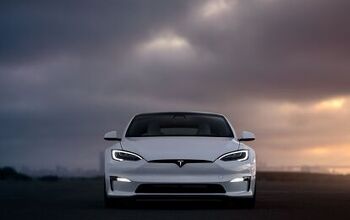British Auto Industry Revived Under New Ownership, Motor City Benefits

In the early 1980s, when Japanese car companies started conquering the automotive world, few would have predicted the survival of the British car industry. British Leyland, whose umbrella eventually included most British marques except for tiny specialists like Lotus and TVR, was busy going defunct. In the 1950s and early 1960s, export demand, particularly for sports cars, helped keep British car factories humming. By the 1980s, though, decrepit factories, continual labor unrest, abysmal quality and Lucas electrics made success virtually impossible in the face of the well engineered and reliable new Japanese cars. Now, three decades later, at a time when the continental European automobile industry is plagued by overcapacity and a dormant market (issues with the Euro, Greece and other debtor countries are probably a factor as well), the British automotive sector is in the best shape it’s been in since the 1960s.
Speaking to the 2013 Society of Automotive Engineers’ World Congress while on a trade mission to Detroit to encourage the US auto industry to consider British suppliers in supply chain decisions, Michael Fallon, the UK’s minister of state for business and energy said that the value of British automotive exports now exceeds the cost of similar imports to the UK.
“Automotive in Britain is now a success story. We’re exporting more by value than we’re importing for the first time in 30 years. We’ve had a huge turnaround.”
Part of the turnaround in the British auto industry is the fact that there is no British auto industry anymore, at least at the assembly plant level. All eight automotive plants in the U.K. are owned by foreign companies. Still, no matter who owns the companies, exports create jobs. Also, the dollar (or pound) value of British automotive exports may be enhanced by the fact that a number of those factories assemble Jaguars, Land Rovers, Bentleys and Rolls-Royces, none of which are inexpensive.
Britain not only has an overall net trade surplus when it comes to things automotive. On Fallon’s visit to Detroit, in an OpEd for the Detroit News he pointed out that his country also has a trade surplus with Michigan, with total trade between the U.K. and Michigan approaching a billion and a half dollars. Michigan exported $700 million in goods to the U.K. in 2012 and imported $740 million in return.
British companies, both U.K. owned and those owned by companies outside of Britain have made significant investments in Michigan. According to the British consulate in Detroit, BAE Systems, Lotus Engineering, Ricardo, the engine company, and other British firms employ more than 19,000 people in the Great Lakes state. Likewise, Michigan based firms like Ford, GM and the Penske Group have substantial investments in Great Britain. Though Ford is closing the Southampton Assembly Plant in response to the doldrums in the European car market, Fallon said that Ford is growing in the U.K. The Dearborn automaker just announced that it will be investing $31 million at the Bridgend engine plant to build 1.5 liter Ecoboost motors.
To give you an idea of how it was before the decline, when Britannia ruled, I’ve posted a fine BBC video on the golden age of Brit sports cars, though it needs pointing out that the video fails to mention the most influential British sports car of all time, the Lotus Elan.
Ronnie Schreiber edits Cars In Depth, a realistic perspective on cars & car culture and the original 3D car site. If you found this post worthwhile, you can dig deeper at Cars In Depth. If the 3D thing freaks you out, don’t worry, all the photo and video players in use at the site have mono options. Thanks – RJS

Ronnie Schreiber edits Cars In Depth, the original 3D car site.
More by Ronnie Schreiber
Latest Car Reviews
Read moreLatest Product Reviews
Read moreRecent Comments
- Carson D I thought that this was going to be a comparison of BFGoodrich's different truck tires.
- Tassos Jong-iL North Korea is saving pokemon cards and amibos to buy GM in 10 years, we hope.
- Formula m Same as Ford, withholding billions in development because they want to rearrange the furniture.
- EV-Guy I would care more about the Detroit downtown core. Who else would possibly be able to occupy this space? GM bought this complex - correct? If they can't fill it, how do they find tenants that can? Is the plan to just tear it down and sell to developers?
- EBFlex Demand is so high for EVs they are having to lay people off. Layoffs are the ultimate sign of an rapidly expanding market.

































Comments
Join the conversation
The real sucess stories of the British car industry are MINI, and Jaguar Land Rover. Britain is now modelling it's car industry on Germany's rather than France or America's. As the French are learning you can't compete in the volume markets with the low wage economies. As soon as the Chinese start making cars we want then the volume brands will suffer. Premium is the future and there is more money in it too.
This thread typifies the blend of erudition & experience that make TTAC the best.